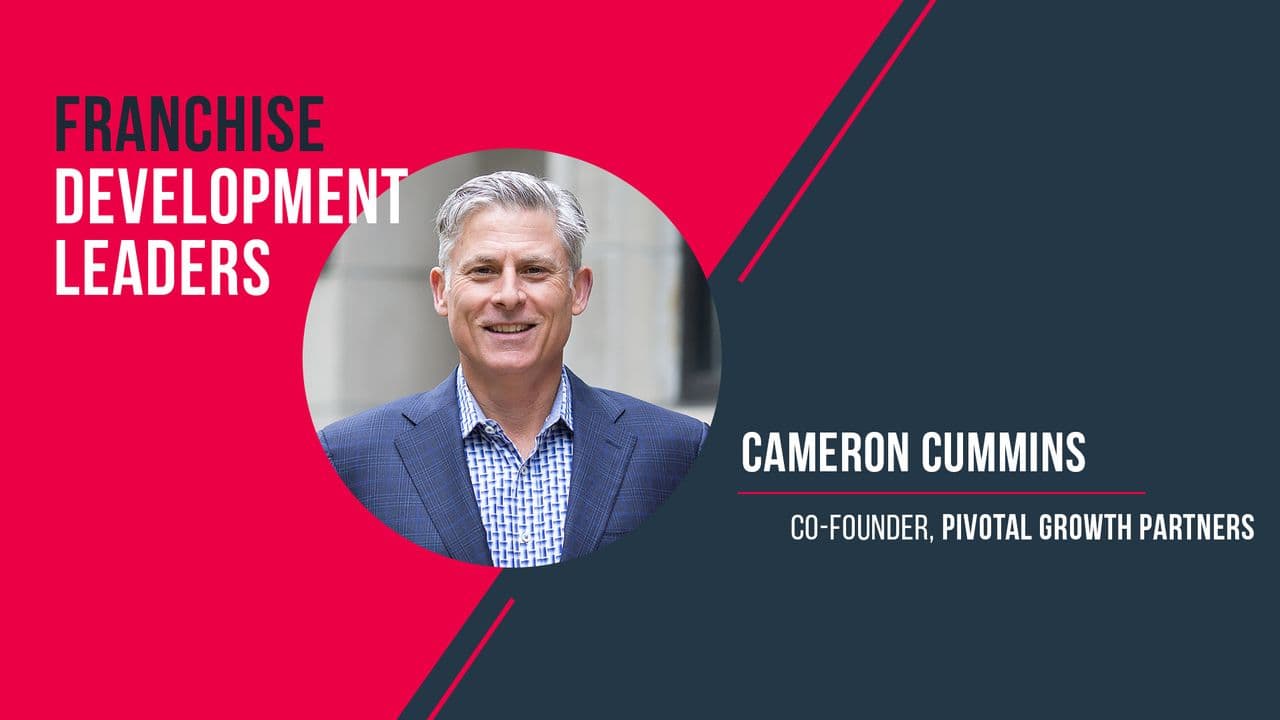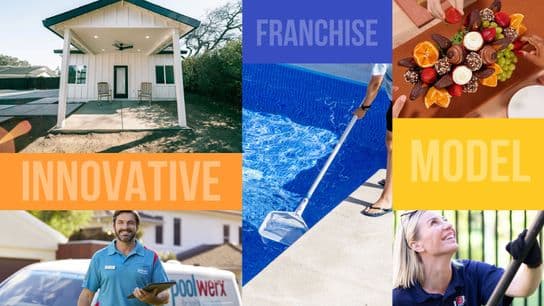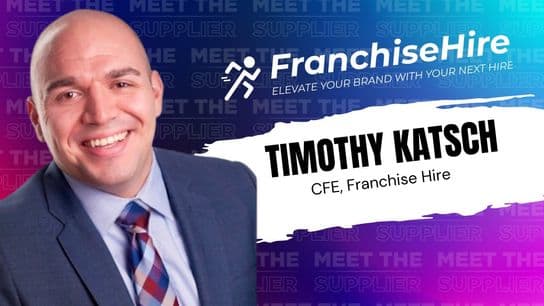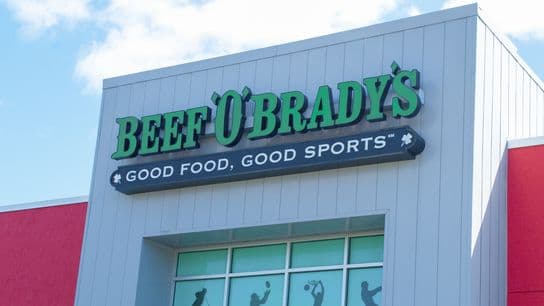Franchise Development Leaders: Pivotal Growth Partners Co-Founder Cameron Cummins
Pivotal Growth Partners co-founder and former Chief Development Officer for Marco’s Pizza Cameron Cummins discusses his journey through the franchising industry and what he’s learned about development along the way.
In his current role as co-founder of Pivotal Growth Partners, Cameron Cummins provides emerging brands in the franchising space with a full suite of resources—from consulting to access to capital, real estate and the network of operators he and his partner have developed throughout many years in the franchising industry—providing an easy, streamlined system of connecting brands with experienced operators who can accelerate their growth. 1851 connected with Cummins to learn how he got to this point in his franchising career and his take on the future of the industry.
1851: How did you first get into franchising?
Cummins: I first became involved with franchising after moving to Los Angeles to take a position as the brand manager for Lexus Automotive. In 2000, I started my own company called inHOUSE Marketing, with a results-oriented approach to marketing in the automotive, adult beverage and franchising sectors. Soon, our company got an RFP offer from Brian Stevens at Yorkshire Global, which at the time owned A&W and Long John Silvers. After accepting the offer, inHOUSE Marketing oversaw Yorkshire’s franchise recruitment and development and I fell in love with the industry, deciding to focus all of my energy on franchising moving forward.
After Yorkshire Global was bought by Tri-Con—the owner of Taco Bell, Pizza Hut and KFC—the company changed its name to YUM! Brands. Brian Stevens became the head of YUM!’s franchise development and brought inHOUSE Marketing along to do all of the franchisee recruitment and ROI metrics back when companies were just starting to apply metrics against outbound communications.
Once we perfected our practice on the recruitment side, I wanted to see if the system worked elsewhere. At one time, inHOUSE oversaw recruitment for 11 of the top 15 franchisors in the country. In addition to inHOUSE, I came on board as the Chief Development Officer at Marco’s Pizza in 2006, growing the brand from 130 stores to 900 stores. In 2018, I wanted to get back to our roots of bringing emerging brands to the next level, so Brian Stevens and I co-founded Pivotal Growth Partners, bringing our combined experience of over 75 years of franchising and restaurant operations to focus on hands-on growth execution for emerging brands.
1851: What do you love about the industry?
Cummins: The first thing is the opportunity to interact with like-minded people every day. Everyone within the franchise industry has an entrepreneurial spirit and aligned personal goals. At Pivotal Growth Partners, it is not a sales process, it is a discovery process. In the end, we award franchises because it is the right thing for the candidate and the right thing for us. I love it when we can help a candidate fulfill their dream and create a relationship. The franchise industry allows us to create a network of hardworking and passionate people who get out of bed ready to tackle the world each day.
Secondly, I love the business challenges that are presented in this industry. No two days are ever the same, and I’d be bored silly if they were. Franchising today is becoming more sophisticated, meaning the challenges are complex and unique—every day presents a new curveball or Rubix Cube to solve. To me, franchise development is not just a job, it is a hobby.
1851: What do you wish that you could change about the industry?
Cummins: The franchise industry is changing itself! With the introduction of private equity coming in and buying brands with a cash flow that is 20 to 30 times higher than what the average used to be, there is a new spotlight on franchising—some of the world’s brightest people are watching and getting involved. Another natural change that I’m glad to see is the influx of millennials coming in and driving the industry, looking at the end first and establishing clear and concise goals.
For the new generation, franchising has become an incredibly viable opportunity—a young entrepreneur can buy one or two stores, grow a huge business over a short period of time and potentially have a private equity exit. As the industry changes by itself, I love going along for the ride. What we’re focused on at Pivotal Growth Partners is determining how these new changes can benefit franchise candidates and provide new avenues for success. It is important to use change to your advantage and ask what is next.
1851: What is the biggest challenge franchisors are currently facing in franchise development and what are you doing to overcome it?
Cummins: The biggest challenge is finding the right people to grow with. There is a very large number of franchise brands starting each year and we are all fishing in the same ocean. The biggest challenge is making sure the spotlight is on your brand with a franchise opportunity and offering that is more attractive than others.
At Pivotal Growth Partners, we don’t do a ton of outbound marketing; rather, our long-lasting relationships have allowed us to do most of our work through personal conversations. For example, yesterday one of our contacts in Miami called me looking for a franchise opportunity and by the end of the conversation, he was recommending a brand to us. Our success comes from our client relationships—no one is going to make the huge financial decision to open a franchise unless they are very comfortable and trust the people that are providing information about the opportunity. We make sure to present all of the facts and help each candidate make the correct business decision based on where they are in their life. No one in our company has “sales” in their title because we are not selling franchises, we are guiding candidates through a business decision. For franchisors, and especially for emerging brands, it is essential to create a solid foundation of franchisees early on that will inspire others to join the team.
1851: What do you think the biggest trend in franchise development will be in 2020?
Cummins: In terms of technology developments, we are at the top of the first inning. Next year, we are certainly going to see a rising popularity in ghost kitchen operations and third party delivery partnerships. These innovations will dramatically change the franchise development landscape, with new types of brands popping up every day. For example, there may be a brand that solely operates out of a ghost kitchen and only exists on GrubHub. These trends will have a huge effect on real estate—brands don’t need to be on the city’s Main Street anymore, and we will see a resurgence of the hub and spoke model.
In the long run, these new technologies are going to have a massive effect on how good brands get out in front of people and develop their models. If a brand is are going to stick with brick-and-mortar operations, it should have multiple uses for that space to keep up with the flexibility of the competition.
1851: What makes a great franchisee?
Cummins: While most franchisors might say franchisees need to be “smart and passionate,” those traits are only the first step. To me, a great franchisee is someone who sits with the brand, reviews the opportunity in its entirety and makes a smart business decision. People would be surprised at how many candidates make emotional business decisions, whether it be because they recently lost their job or are running away from another industry. The best franchisees are the ones who are careful and are willing to have frank conversations with us about the good, the bad and the in-between. Instead of wearing rose-colored glasses, the best franchisees are the ones whose eyes are wide open.
1851: What's the No. 1 thing that sells franchises?
Cummins: We don’t sell franchises, we award franchises. There is no arrogance in that—candidates need to know what they are getting into and we put all the chips on the table. If a franchise opportunity isn’t a great fit for one candidate, we move on to something else. Instead of focusing on sales, we make sure franchisors start with a team of the right people. If you build a base of 10 to 30 great franchisees, people will be naturally drawn to the brand because of the success. We don’t sell anything, we help people discover the opportunity.









